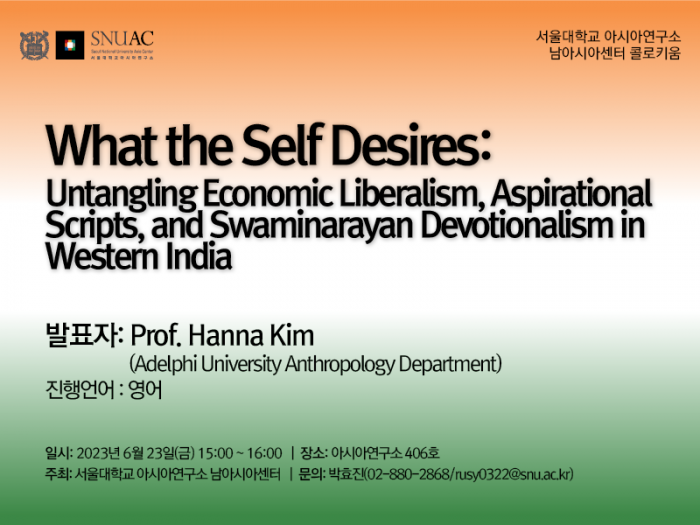학술 | What the Self Desires: Untangling Economic Liberalism, Aspirational Scripts, and Swaminarayan Devotionalism in Western India
페이지 정보
작성자 Admin | 작성일23-06-16 11:20 | 조회900회관련링크
본문
Throughout major cities of India, at the airport, along main roads, and many places between, there is a wide variety of large signs announcing India’s G20 presidency for 2023. For those needing a reminder, signs stating the G20 motto, “One Earth, One Family, One Future,” an expansive English translation of its Sanskrit antecedent, vasudhaiva kuṭumbakam (वसुधैव कुटुम्बकम्), are also everywhere. These repeated expressions of an India seeking recognition for its contribution to global economies and responsible development can prompt the usual questions of who and how are citizens benefitting from top-down economic initiatives. Drawing on recent fieldwork, I turn to the lives of young people who are living in the western Indian state of Gujarat. This presentation directs attention to the aspirations of young people and their experiencing of neoliberalism alongside the flourishing of contemporary bhakti (devotionalism) movements in India. The new economy needs efficient, self-motivated, and disciplined bodies and promises opportunities for those who acquire the right education and are able to train their self into an enterprising citizen. For youth in the Swaminarayan movement, there is a similar emphasis on the hard work of reshaping the self but this labour is toward a different ontological objective. I argue that looking at Swaminarayan youth projects in the context of aspirational and economic scripts offers insights into how successful religious movements bridge the mismatch between possibility and reality. The self’s purpose can be oriented toward attaining material success and serving the nation but these objectives are not secondary to cultivating specific kinds of relationships and connections that provide strategies for living in unsteady and often highly inequitable times. I conclude by suggesting that the Swaminarayan devotional tradition offers a means for the desiring self to live amidst changing political and economic conditions and this should complicate rather than simplify the relationship of neoliberalism to aspiration to religion.

